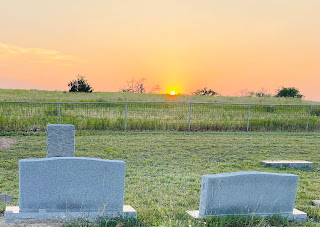Stephen King's publisher lobbied long and hard for King to not even write The Shining, worried he would get typed as a horror writer. The book went on to be King's first hardcover bestseller.
There's some irony for you.
Then came the movie. The Stanley Kubrick film, generally considered one of the greatest horror films of all time, diverged significantly from King's novel. The author was quite vocal about his disappointment. The irony here is that the popularity of the movie drove book sales through the roof.
People were puzzled about the title—even after reading the book or seeing the movie. Where did King get the idea to call it The Shining? He wouldn’t say. In fact, it wasn't until 11 years after its publication that King finally explained. The title came from John Lennon’s song, “Instant Karma!” In it, Lennon suggests that, “like the moon and the stars and the sun,” we "all shine on."
It seems "shining" has often been pretty controversial. It’s the kind of situation that might cause you to take a step back—maybe more than one step.
Shining is a big part of this week’s scriptures. In the Exodus passage, when Moses came down from his mountaintop meeting with God, his face was positively glowing—really glowing. Moses was so bright, the people were afraid. He had to keep his face covered with a veil until the glow faded away. If we saw someone like that today, no doubt we would be frightened, too.
In the Luke passage, Jesus took his inner circle up the mountain where He was transfigured. He too was left glowing after encountering God there. I wonder how long that glow lasted? Scripture doesn't tell us. We know one thing, though—they didn't come down from the mountain until the next day.
Both "shinings" show up in the Corinthians passage. Paul compares the two and tells us we can let go of that old, fading shine of the Law of Moses. He wants us to know that, since Jesus has “removed the veil,” we no longer need some intermediary to trek up the mountain on our behalf. We can now meet God face to face. But you need to be aware, it’s likely to leave a glow, a shining you do not want to avoid. You want people to see you with that shine. It's God's light pouring through you.
Shine on.
_________________________
PHOTO: “Lakeside Sunrise” by Steve Orr
Curious? Here’s John Lennon singing “Instant Karma!” It’s not for everyone. Maybe just John Lennon fans. Still, Stephen King liked it:
https://www.youtube.com/watch?v=zqgTSk9Aq50
Just for fun, here’s Colbie Caillat singing “Brighter Than the Sun”:
https://www.youtube.com/watch?v=MYkudx096Pg
__________________________
Not all of us are morning people, bright and shining when we first face the day. That's what breakfast is for. And coffee. Join us for DaySpring’s Lectionary Breakfast on Friday morning at 8:00. We gather for a great hour of relaxed fellowship and scripture on Zoom** and in-person at Our Breakfast Place.
Blessings,
Steve
**Zoom link (Zoom allows you to mute the camera and the microphone if you don’t wish to be seen or heard.)
https://lectionary.library.vanderbilt.edu/wp-content/uploads/pdfs/Cx_TransfigurationSunday.pdf
Exodus 34:29-35



